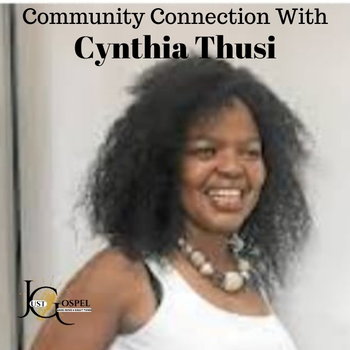
Eve: The First Woman and the Church - Part 2 with Pst Patrick | Practical Living Tips
Loading player...
In this compelling second installment of Just Gospel Radio's series on biblical women, Pastor Patrick Mdebele continues his deep exploration of women's roles in Scripture, focusing specifically on Eve, humanity's first mother. This episode moves beyond surface-level narratives to uncover profound theological truths about creation, purpose, and the relationship between men and women in God's design.
The Divine Purpose Behind Woman's Creation
Pastor Patrick methodically walks through Genesis 2, establishing the context before woman's arrival. He identifies four critical developments: Adam was working in the garden, received God's law about the forbidden tree, needed help, and was given the creative power to name animals. Significantly, all of this occurred before Eve existed, emphasizing that the law was given to Adam alone—a detail with devastating consequences later.
The pastor challenges superficial interpretations of woman as merely "womb-man," clarifying that Eve was called woman because she was taken from man, not because of reproductive function. Her creation from Adam's rib during his "deep sleep" symbolizes a divine reset—a reprogramming of man's consciousness to recognize he is no longer alone and that partnership, not dominance, is God's intention.
Helper Doesn't Mean Inferior
A revolutionary insight emerges: the person sent to help often possesses more skills than the one being helped. This paradox creates tension in relationships and ministry contexts. Pastor Patrick notes that having superior skills doesn't confer leadership authority; rather, it creates interdependence. Adam needed consultation with Eve because she possessed capabilities he lacked, yet the leadership structure remained his responsibility.
The phrase "bone of my bones, flesh of my flesh" isn't romantic poetry but Adam's recognition of equality and shared essence. Unlike the animals he named, Eve reflected his own image and physical structure. This recognition establishes woman as man's extension—a profound parallel to the Church as Christ's extension.
Eve as Symbol of the Church
Pastor Patrick introduces a typological framework: Eve represents the Church, and Adam represents Christ. This symbolism reveals how the Church should function: with humility, helpfulness, and obedience to Christ. The Garden of Eden becomes the first church, Adam the first pastor, and Eve the first congregation—a framework that illuminates the fall in devastating clarity.
The Gender Dilemma and the Fall
The pastor confronts what he calls "the gender dilemma": Eve spoke when she should have remained silent, while Adam remained silent when he should have spoken. Eve engaged the serpent in theological conversation without consulting Adam, making decisions hastily and independently. Meanwhile, Adam was "physically present but emotionally absent"—a dynamic that destroys many modern marriages.
Pastor Patrick suggests two possibilities: either Adam never fully communicated God's law to Eve, or Eve ignored his instruction. Either scenario reveals fatal breakdowns in communication and consultation. Eve's superior communication skills (she could understand the serpent's language) became a liability without proper guidance and accountability.
Practical Applications for Modern Women
The episode pivots to actionable wisdom. Women must recognize their God-given skills and giftings without devaluing themselves based on marital status, past mistakes, or societal judgments. Pastor Patrick emphasizes that spiritual gifts are not gender-specific and encourages women's participation in worship, music, ushering, and various ministry roles.
He addresses women carrying shame from past circumstances—rape, divorce, children born outside marriage—declaring that in Christ, they are new creations. The past doesn't define purpose. Women shouldn't "park" at their pain points but move forward into their
The Divine Purpose Behind Woman's Creation
Pastor Patrick methodically walks through Genesis 2, establishing the context before woman's arrival. He identifies four critical developments: Adam was working in the garden, received God's law about the forbidden tree, needed help, and was given the creative power to name animals. Significantly, all of this occurred before Eve existed, emphasizing that the law was given to Adam alone—a detail with devastating consequences later.
The pastor challenges superficial interpretations of woman as merely "womb-man," clarifying that Eve was called woman because she was taken from man, not because of reproductive function. Her creation from Adam's rib during his "deep sleep" symbolizes a divine reset—a reprogramming of man's consciousness to recognize he is no longer alone and that partnership, not dominance, is God's intention.
Helper Doesn't Mean Inferior
A revolutionary insight emerges: the person sent to help often possesses more skills than the one being helped. This paradox creates tension in relationships and ministry contexts. Pastor Patrick notes that having superior skills doesn't confer leadership authority; rather, it creates interdependence. Adam needed consultation with Eve because she possessed capabilities he lacked, yet the leadership structure remained his responsibility.
The phrase "bone of my bones, flesh of my flesh" isn't romantic poetry but Adam's recognition of equality and shared essence. Unlike the animals he named, Eve reflected his own image and physical structure. This recognition establishes woman as man's extension—a profound parallel to the Church as Christ's extension.
Eve as Symbol of the Church
Pastor Patrick introduces a typological framework: Eve represents the Church, and Adam represents Christ. This symbolism reveals how the Church should function: with humility, helpfulness, and obedience to Christ. The Garden of Eden becomes the first church, Adam the first pastor, and Eve the first congregation—a framework that illuminates the fall in devastating clarity.
The Gender Dilemma and the Fall
The pastor confronts what he calls "the gender dilemma": Eve spoke when she should have remained silent, while Adam remained silent when he should have spoken. Eve engaged the serpent in theological conversation without consulting Adam, making decisions hastily and independently. Meanwhile, Adam was "physically present but emotionally absent"—a dynamic that destroys many modern marriages.
Pastor Patrick suggests two possibilities: either Adam never fully communicated God's law to Eve, or Eve ignored his instruction. Either scenario reveals fatal breakdowns in communication and consultation. Eve's superior communication skills (she could understand the serpent's language) became a liability without proper guidance and accountability.
Practical Applications for Modern Women
The episode pivots to actionable wisdom. Women must recognize their God-given skills and giftings without devaluing themselves based on marital status, past mistakes, or societal judgments. Pastor Patrick emphasizes that spiritual gifts are not gender-specific and encourages women's participation in worship, music, ushering, and various ministry roles.
He addresses women carrying shame from past circumstances—rape, divorce, children born outside marriage—declaring that in Christ, they are new creations. The past doesn't define purpose. Women shouldn't "park" at their pain points but move forward into their


